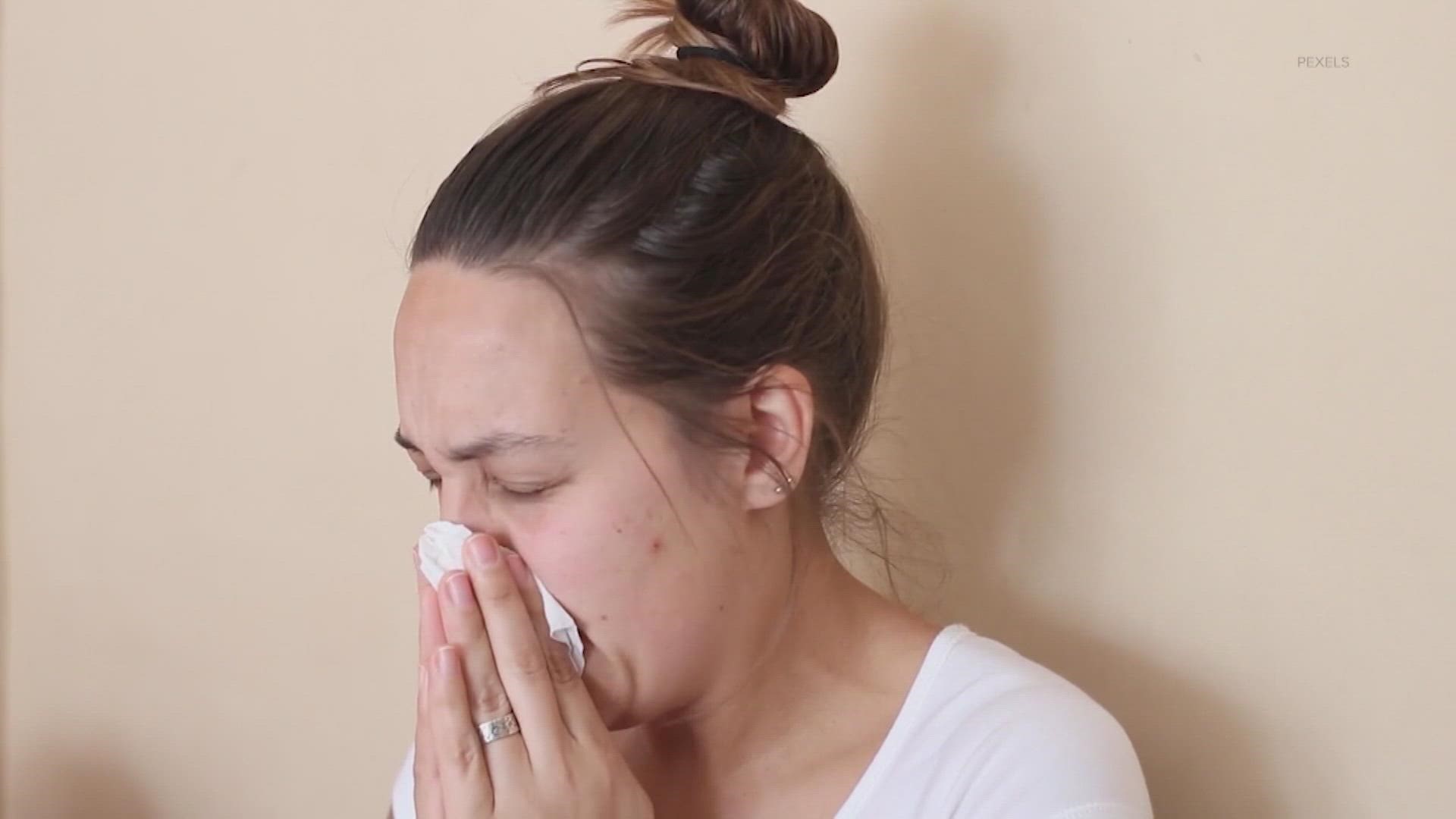WASHINGTON — Snow and sneezing seem to go hand in hand in the winter. It's when we typically see a spike in upper respiratory infections like colds and flu.
A new study shows just how the cold lowers our defenses when it comes to viruses and bacteria, and it has a lot to do with the nose. The study published in The Journal of Allergy and Clinical Immunology found that our response to viruses slows down by nearly 50 percent on average when cold air is factored in.
The nose is a great filter
The nose is often the first line of protection when it comes to fending off germs that cause upper respiratory infections. Dr. Benjamin Bleier, Harvard Medical School professor and doctor at Mass Eye and Ear, said we breathe in about 10,000 liters of air per day. Our nose is acting as a filter to weed out viruses and bacteria. Dr. Bleier was one of the lead researchers in the study.
The study found that when viruses enter the nose, the nose goes into attack mode releasing billions of tiny fluid-filled sacs called "EVs" or extracellular vesicles, that surround the pathogen and eliminate it.
"When the nose is exposed to a virus, when the very front of the nose detects these particles, it produces a very rapid and robust response," Bleier said. "The cells release a swarm of EVs. Almost like a hornet's nest, like the hornets swarm out to protect the nest", he explained.
Our immune system is tough and did not take the entry of viruses lightly. Bleier said the EVs contained more receptors to bind to the virus before it has a chance to infect our cells. The EVs also contained a huge boost in virus-killing molecules.
The cold slows it down
At 74 degrees, all of those mechanisms worked great. In the study, researchers lowered the temperature to 39.9 degrees for 15 minutes. The nasal temperatures dropped and so did the body's response. On average, Bleier said they saw a roughly 50 percent reduction in the EV response. Researchers tested a response to coronavirus and two rhinoviruses that cause the common cold.
Solutions
So what can we do? Dr. Bleier said keeping your nose warm or covered may help.
"The masks that everyone has been wearing for years are having a double effect, then just blocking us from inhaling viruses. I do think that it does keep that air in front of your nose warm," he said. "That doesn't account for the subsequent amount of hours that we are around people with the masks off."
In the future, Dr. Bleier said there could be treatments to keep our noses in optimal protection mode.
"We may be able to find other local therapies that can be applied locally just to the front of our nose that may also protect us against viral infection in the future," Bleier said.

